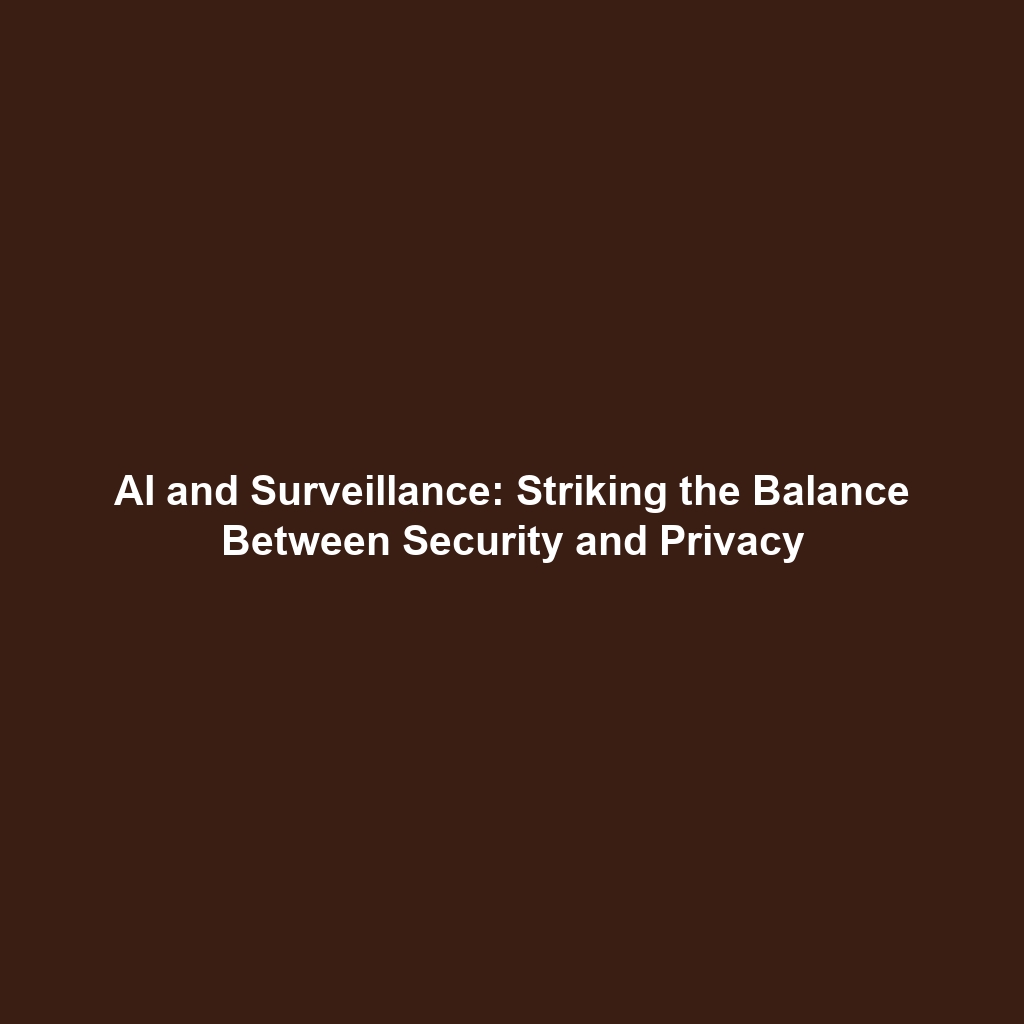AI and Surveillance: Balancing Security with Privacy
Introduction
In an age where technology pervades every aspect of life, the intersection of AI and surveillance becomes critical in understanding societal norms. As surveillance technologies are increasingly augmented by artificial intelligence, the pressing question is how to balance security and privacy. This balance is significant within the broader context of AI ethics, raising concerns about citizen privacy and the implications of pervasive monitoring. Ensuring that technology serves the public good while maintaining ethical integrity is at the heart of the evolving dialogue around AI and surveillance.
Key Concepts
Understanding AI and Surveillance
The major concepts surrounding AI and surveillance involve several core principles:
- Data Collection: The gathering of personal information through various surveillance technologies.
- Algorithmic Decision-Making: Using AI to analyze data and make decisions that can impact individuals’ lives.
- Privacy Rights: Legal and ethical frameworks that protect individuals from unjust surveillance.
- Accountability: Ensuring that AI systems and those who deploy them are held responsible for their impact on society.
These concepts fit seamlessly into the realm of AI ethics, underscoring the necessity for careful oversight and ethical guidelines in the deployment of surveillance technologies.
Applications and Real-World Uses
How AI and Surveillance are Used in Society
The applications of AI and surveillance are numerous, particularly in the context of enhancing security while navigating ethical considerations. Significant examples include:
- Facial Recognition Systems: Widely used in public spaces to enhance security but raising questions about consent and accuracy.
- Predictive Policing: AI algorithms analyze crime data to forecast potential criminal activity, but may perpetuate biases.
- Cybersecurity: AI monitors network activity to detect vulnerabilities, contributing to overall security resilience.
Current Challenges
Challenges of AI and Surveillance
Studying and applying AI and surveillance involves several challenges that intersect with AI ethics:
- Privacy Invasions: Potential overreach in surveillance capabilities can breach personal freedom.
- Lack of Regulation: Insufficient legal frameworks to govern AI deployment in surveillance.
- Algorithmic Bias: Potential for bias in AI algorithms that can lead to discriminatory practices.
Future Research and Innovations
Next-Gen Technologies in AI and Surveillance
Researchers and technologists are exploring several innovations in AI and surveillance that can influence the future of AI ethics:
- Enhanced Privacy Frameworks: Developing methodologies that ensure data anonymization while using AI surveillance.
- Transparent Algorithms: Innovations focusing on how algorithms operate, ensuring fairness and accountability.
- AI for Ethical Surveillance: Creating systems that prioritize ethical considerations in surveillance practices.
Conclusion
The dialogue around AI and surveillance highlights a critical balancing act between ensuring security and respecting individual privacy rights. As technology continues to evolve, navigating these challenges in alignment with AI ethics becomes essential for building a trustful society. For those interested in delving deeper, explore our related articles on ethical AI practices and privacy rights in technology.

Leave a Reply